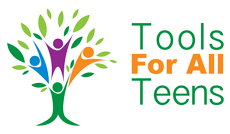By Carly Hominuk
 If given the chance, many would say they would like a do-over in certain aspects of their life. Whether it is re-doing a test, studying another program, saying yes to someone else, we’ve all done it; wished for another shot. However, the fact is that much of this universal attribute comes from one’s worry about the ways others perceive them. So instead of taking little aspects of one’s life and wishing for just those little details to have turned out another way, a simpler, more concise, and-let’s face it-more honest way to express this would be the wish to change how others regard you. Even if this would mean false advertisement for one’s life by putting on a fictitious front over the internet, many are willing to make the sacrifice.
If given the chance, many would say they would like a do-over in certain aspects of their life. Whether it is re-doing a test, studying another program, saying yes to someone else, we’ve all done it; wished for another shot. However, the fact is that much of this universal attribute comes from one’s worry about the ways others perceive them. So instead of taking little aspects of one’s life and wishing for just those little details to have turned out another way, a simpler, more concise, and-let’s face it-more honest way to express this would be the wish to change how others regard you. Even if this would mean false advertisement for one’s life by putting on a fictitious front over the internet, many are willing to make the sacrifice.
This false advertisement is seen constantly in our world’s 21st century day. In fact the 2013 social networking statistics are as follows: 1.15 billion users on Facebook, 500 million on Twitter, 150 million on Instagram, and over 100 million on Tumblr. Whether it is any of these sites, teenagers, as well as many well-adapted adults, are using these sites for not only casual lurking purposes, but to exchange limitless amounts of personal information with the ‘liking’ of each other’s photos, and the posting of excessively personal statuses which may or may not even be true. But because it’s over the Internet, no one will ever know if it’s a lie, right? Well, right. No one will probably ever find out that your numerous Photo-shopped pictures and statuses of how you’ve just been so incredibly busy with all of your nights out with all of your popular friends because you yourself are simply THAT popular fall shy of the truth. However, the fact of the matter is, by doing this, one is living under the mask of someone they are not. Losing yourself in this process as well as losing any sense you have of acceptance to these highly magnetic sites is a serious repercussion.
These social networking sites allow users to epitomize themselves, resulting in their unhappiness and, more ironically, the feeling of rejection for who they are behind the virtual medium. Many studies have shown that people who use these social networking sites often become less social, and, in fact , are less satisfied with themselves. Jennifer Garam, a writer for Psychology Today deliberately points out the negative effects of social media on her life, “On Facebook and Twitter, everything is always wonderful for everyone and all their lives are amazing. Except for the people who deliberately cultivate cynical, snarky social media personas, and to my shaky self-esteem, even this is something to be envious of; I feel like an insecure metal shop and does not care about anything, and like I could never be that cool” (Social Media, 14). In addition to this remark about these hyperbole-like personas people create over the internet, and how they affect others self-esteem, Garam continues to prove the dark side of social networking about how creating her own persona lead to further sadness, “A few years ago, I went through a severe depression and was trying in many ways, one of which was via Twitter, to force myself into happiness. Not just regular happiness, but the hyper, amped-up glee that everyone displays on social media when the last thing I wanted to do was face another week. I didn’t feel like anything was possible and what I really wanted to do was crawl under my covers and never come out. And the disparity between my real life sadness and my social media cheerfulness made the depression hurt even more” (Social Media, 14). This demonstrates that the social networking scene allows people to create a fictitious front, one they want others to believe they are the epitome of; potentially because of feeling obliged too by reason of everybody doing it. This leads to the realization that they are not this person they have manifested, leading to further dissatisfaction with whom they are and where they are as a person.
This constant struggle with happiness that is being magnified and elaborated by these social sites is such a growing case that studies have even been done to confirm the negative mental health consequences of using sites such as Facebook. 82 people participated in an elaborate University of Michigan study where they answered surveys, questionnaires, and responded to 5 text messages a day; noting if they had been in recent contact with Facebook (Facebook use, 2014). The study found Facebook use led to declines in the happiness of one’s life and an overall decrease in satisfaction (Facebook makes us, 14). There is hope for this situation however, and it may be easier said than done. Having said that, the solution to the problem is much simpler than the problem itself; the cure, being much better than the disease: stop using these sites. Research has even proven this simple, yet challenging solution in our day in age, to be truly the only remedy.
All in all, Facebook, as well as the many other swarming social sites have been proven to decrease ones overall happiness as a human. Many reasons have been theorized upon and explained, a prominent one being the false exemplification of one’s self in addition to the false-exemplification of others. The copious numbers of users on these sites earmark a cyclic, undying phenomenon; yet we must not forget we do have a certain degree of control over what we expose ourselves to. This everlasting cycle of false advertisements and feeling bad about oneself can be easily halted by simply stopping the social networking. The happiest people in life are those that do not need a specific reason to be happy; hence one of the numerous reasons to turn off the sites and turn on yourself.


